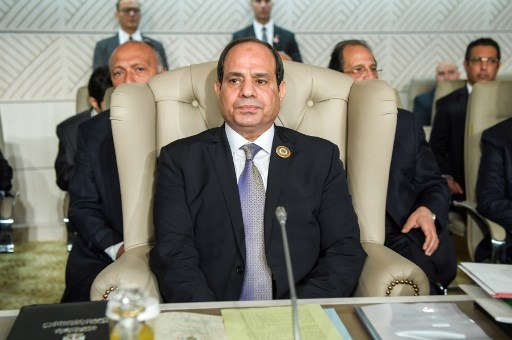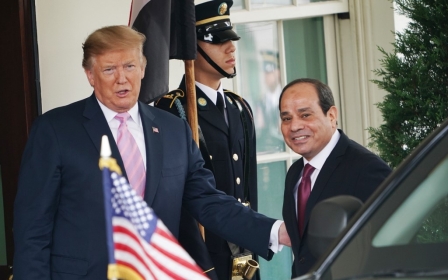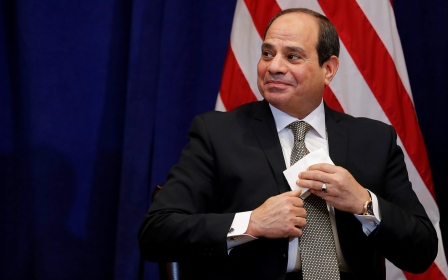Egypt blocks petition against Sisi's constitutional amendments hours after launch

An online petition against proposed constitutional amendments that could extend the rule of President Abdel Fattah el-Sisi until 2034 was blocked in Egypt late on Tuesday, hours after it was launched by Egyptian opposition figures from across the political spectrum.
The campaign, titled Batel - Arabic for "Void," reached nearly 60,000 signatures before online monitors reported that it had been blocked in the country.
Earlier on Tuesday as the petition was launched, Ayman Nour, leader of Ghad El Thawra Liberal Party, said in a statement: "We hope that through 'Batel' Egyptians will feel empowered to tell Sisi what they really think about his amendments and his government in general.
"We are concerned that these constitutional amendments will be the final step towards transforming Egypt into a fully autocratic state, with extreme human rights violations and failures in all aspects of life for many years to come."
Sisi is currently on a visit to Washington, DC where he is expected to meet President Donald Trump in the White House in a tacit show of support for the Egyptian autocrat.
The meeting between the two leaders is the latest example of how the Trump administration has emboldened repression in Egypt, activists and experts have told Middle East Eye.
The Void campaign, according to its founders, seeks to rally support against a string of constitutional amendments that would extend Sisi's rule for two more six-year terms and subjugate the judiciary to Sisi's control.
How would Egypt’s constitution change?
+ Show - HideMeasures proposed under the new constitution include:
- Extending the presidential term from four to six years. A separate provision would let the current president to run for office at the end of his current term
- Expanding the role of the armed forces to include “safeguarding the constitution and democracy, maintaining the foundations of the state and its civilian nature, the gains of the people, and the rights and freedoms of the individual”.
- Allowing the president to appoint the prosecutor general, the head of the supreme constitutional court and its new members, also to chair a supreme council for judicial bodies
- Creating a second parliamentary chamber, with one-third of members appointed by the president
- Allocating at least one quarter of the parliamentary seats for women
- Increasing the allocation of parliamentary seats for Coptic Christian candidates.
- Creating the post of vice-president to assist the president and to serve as temporary president with limited powers if the president cannot carry out his duties
Sisi is a former minister of defence who came to power in 2013 after a coup he led against his predecessor Mohamed Morsi, Egypt's first freely elected civilian president.
Since his highly contested election in 2014, Sisi has overseen what independent groups have described as the worst crackdown on human rights in Egypt's modern history.
Sisi's opponents are concerned that his government will manipulate the election to ensure that the referendum passes.
Translation: The 'Void' campaign has been launched. Participate in this free vote, a secure way through which we declare that the following things are void: the amendments, Sisi's continued presidency for life, the army's control on politics, and the judiciary's subordination to the executive authority.
Calls to oppose the constitutional amendments have been recently joined by prominent Egyptian public figures and celebrities who have subsequently been targets of lawsuits accusing them of "treason".
Actors Amr Waked and Khaled Abol Naga have faced charges of "betraying Egypt" following a Washington event in which they spoke publicly against the amendments. They were also expelled from their country's actors union over their public statements.
Both actors have faced pro-government Egyptian media campaigns vilifying them and accusing them of playing a part in various plots to take down the state.
At least 60,000 people have been jailed on political grounds since Sisi came to power, according to a Human Rights Watch estimate.
Middle East Eye propose une couverture et une analyse indépendantes et incomparables du Moyen-Orient, de l’Afrique du Nord et d’autres régions du monde. Pour en savoir plus sur la reprise de ce contenu et les frais qui s’appliquent, veuillez remplir ce formulaire [en anglais]. Pour en savoir plus sur MEE, cliquez ici [en anglais].




